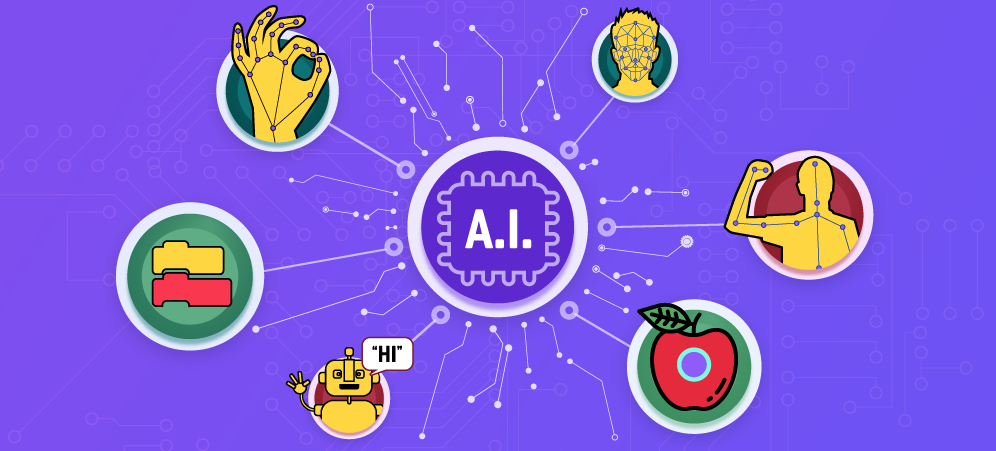
Every day, whether you realize it or not, you’re interacting with Artificial Intelligence (AI). From asking your iPad for the latest weather, getting personalized movie recommendations, to the computerized sensors in modern cars — AI is everywhere. It’s shaping industries, creating new ways of doing things, and offering solutions to complex challenges. In fact, it’s hard to think of a sector untouched by the magic of AI.
Consider a few examples:
- Healthcare: AI assists doctors in diagnosing diseases, sometimes catching things that the human eye might miss. Imagine a computer system analyzing thousands of medical images in minutes, assisting medical professionals in identifying potential health risks.
- Finance: Have you ever received a notification from your bank about a suspicious transaction? That’s AI at work, constantly monitoring and learning from your spending habits to ensure your financial security.
- Entertainment: Streaming services utilize AI to analyze our viewing patterns, ensuring we spend less time browsing and more time enjoying content tailored to our tastes.
Today, AI isn’t a niche technology for elite tech companies or a topic reserved for sci-fi novels; it’s embedded in our daily routines, tools, and systems. Without providing an education in the foundations of AI — including its responsible use — we risk creating a society of spectators in a world sculpted by AI rather than active participants and innovators.
Table of Contents
Teaching AI to Kids
But with such a vast and mathematically complex subject, how can we introduce kids to AI? The key lies in breaking down the complex into relatable, understandable chunks. Remember the adage, “How do you eat an elephant? One bite at a time.” Similarly, teaching AI to children involves presenting it piece by piece, making sure each portion is digestible, relatable, and engaging. Here are a few tips:
- Using Analogies: We could liken a computer’s learning process to a child’s. Just as kids learn from repeated examples (like distinguishing between cats and dogs), AI systems, especially Machine Learning algorithms, refine their knowledge from vast amounts of training data.
- Interactive Engagement: Engaging kids with hands-on projects can demystify abstract concepts. Creating a simple chatbot can offer insights into how bigger platforms like Siri or Netflix’s recommendation engine function.
- Safe Experimentation: Offering a sandbox environment, where kids can experiment, fail, and learn, fosters understanding and creativity.
Self-directed AI-powered projects allow students to explore problems that inspire and see themselves as coders. By choosing a project of their own devising, students are motivated to persevere through the hard parts of computer science — learning becomes an adventure, where trial-and-error, playful learning, and experimentation are key. Students become participants in their own learning — see themselves as young inventors, gaining the entrepreneurial and innovative mindset.
Tynker’s Approach: From Blocks to JavaScript
Tynker offers a two-pronged approach to learning AI: block coding for beginners and a more advanced JavaScript course.
AI with Block Coding
This beginner friendly course makes AI simple. Each block represents a fundamental concept or function in AI. By snapping these code blocks together in sequences, young learners can create meaningful AI-driven projects, grasp foundational principles, and see immediate, tangible results. Kids start by using pre-trained blocks that use AI to track their face, hands, and body using a webcam. Simple projects like digital costumes and “face paint” apps show them the possibilities, without much code at all. Transform your face into a silly potato!
As they learn more about the AI behind the scenes, students learn how to use the AI blocks to create gesture-controlled apps — in other words, games that can respond to “finger pinches” and facial expressions! Just think: A digital costume app that can tell if you’re blinking — or if your mouth is open.
Finally, students graduate to AI approaches that require training data and careful planning, by using Tynker’s Natural Language Processing (NLP) blocks. Working with NLP is like teaching an AI to understand different questions and give appropriate responses.
Consider this starter code, for a movie review classifier:
This simple text classifier named “movie review” can
interpret two possible outcomes: Happy and unhappy movie-goers.
And of course, the more training data you provide the classifier (in the form of inputs), the better that classifier is able to handle unique user input. Want more details? Read this short tutorial to get a better idea of how it works and REMIX the sample project to look inside. Or take Tynker’s AI Course and make an interactive “Solve the Mystery” NLP game where you are the detective!
With the NLP blocks, you can create all kinds of applications that use Natural Language as input — imagine a flexible personality quiz, a dungeon crawler powered by NLP, or any kind of interactive story! The possibilities of NLP are endless.
AI with JavaScript
As students grow in confidence and curiosity, Tynker’s JavaScript course provides a deeper dive into AI. JavaScript, one of the pillars of modern web development, offers a gateway to AI projects using Google’s MediaPipe library.

More than just exploring how AI works, students dive into AI ethics, explore the latest LLM technologies hands-on, and famous cases of AI failures, so they can understand the limitations of technology, too, and become responsible developers.
Dive Deeper with Tynker’s AI Resources
Explore the exciting world of AI with these Tynker offerings:
- Block Coding for Kids: Tynker’s New AI & ML Course
- Free AI Tutorials: Walkthrough of The AI Blocks – AI Block Coding Tutorial
- Advanced AI with JavaScript: Tynker’s Artificial Intelligence Course
- Info for Parents on Block Coding: Introduction to AI & ML
- Info for Parents on JavaScript: Deep Dive into Artificial Intelligence
- AI Courses for Schools: Equip Your School with AI — All K-8 Plans Included
Go further and discover how Tynker’s Curriculum can inspire the next generation to shape the world through the power of code.





